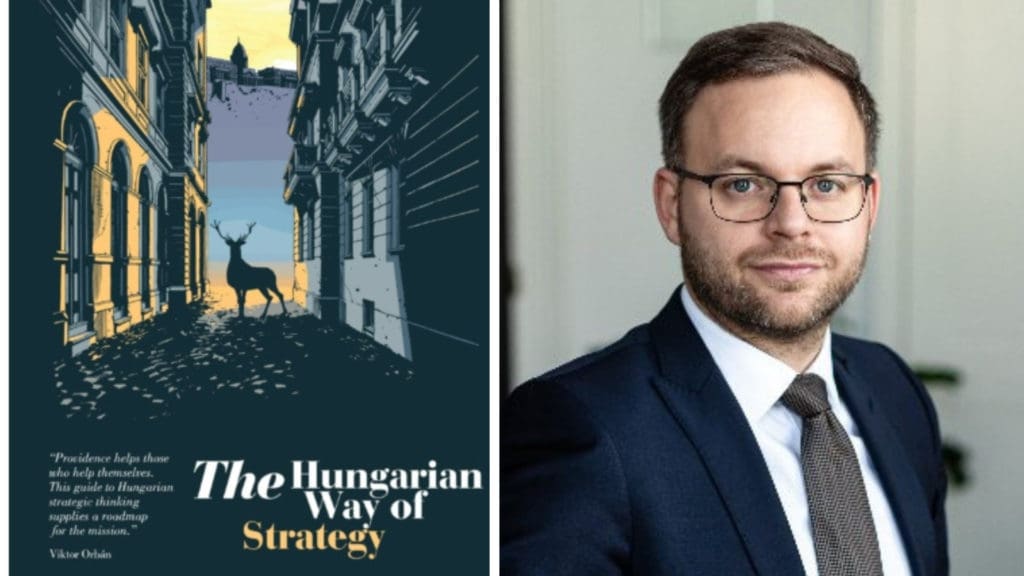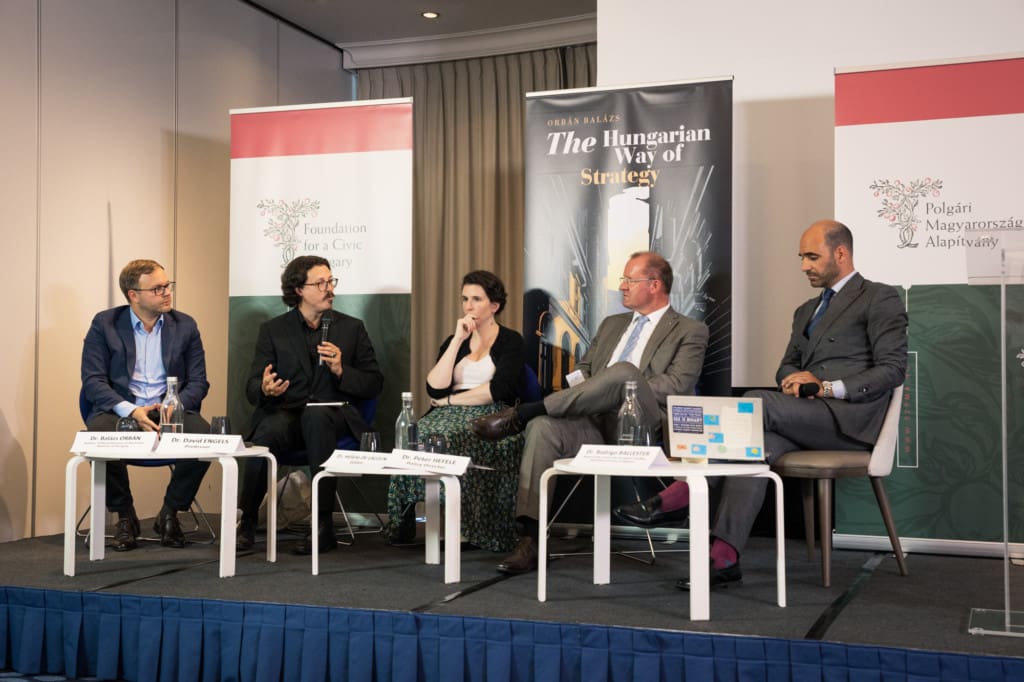For many conservatives, while Hungary represents a window into what is possible, the country nevertheless remains an enigma. Despite non-stop negative international media coverage, pressure from Brussels and international NGOs, and a difficult geographical position between the East and the West, the country continues to thrive. But why? Now, a new book from a key player in the country’s government is giving an international audience a window into how Hungary continues to serve as a bastion for pro-family policies, traditional values, and a strong nation-state.
Balázs Orbán, who serves as the political director to Prime Minister Viktor Orban, presents an alternative vision of Europe in his book “The Hungarian Way of Strategy,” one that runs counter to the left-liberal establishment that increasinlgy seems to call all the shots nearly everywhere but Hungary. Balázs Orbán explains how Hungary has and will continue to play an outsized role in the continent’s future direction, explaining in detail that Europe can only survive as a union of sovereign nation-states.
At the heart of his book is the idea that love of nation must come first, which is the primary building block for any conservative movement.
“Being proud of your country is far more important than any other ideology,” he said at a conference organized by the Foundation for a Civic Hungary in Brussels on July 12, which involved politicians and academics discussing his book and their reactions to its findings.
In the book, Orbán explains how conservatives rose to power in Hungary and, perhaps more importantly, have managed to maintain power for well over a decade by responding to the economic, security, and cultural needs of Hungarian citizens.

Despite Balázs Orbán’s high-level role in Hungary’s government, the book is not purely about policy. Instead, he explores how Hungary’s national government was born from the country’s unique history and geopolitical position in the world. Even the cover of “The Hungarian Way of Strategy” pays homage to Hungary’s unique past, with the author detailing how the stag, known in Hungarian as a “csodaszarvas,” is a mythological creature that represents the purpose of the Hungarian nation.
While the book is for Hungarians, demand and positive feedback led him to translate the book into English, a move that has drawn praise from some of the biggest names in the American conservative movement.
“Balázs Orbán is one of the smartest political thinkers I’ve ever met. Unfortunately, his book was in Hungarian, so only 0.001 percent of the Earth’s population could read it. That’s been fixed now, which is a very good thing for the world,” wrote Tucker Carlson.
Balázs Orbán said he also wrote the book out of a deep concern about the future of Europe, one in which he fears the culture and history that has defined the continent will be systematically erased. He argues that the EU’s member states are linked together by 30 different areas of public policy, yet the nations know little about each other or the priorities of one another. The EU is pushing ahead with integration with little regard for these differences — all to ensure a frighteningly centralized Europe, which could lead to a systematic failure of the entire European project. The book urges Europe’s citizens and political leaders to show more understanding about the unique role of the nation-state to avoid this catastrophic outcome.

Although the book is about Hungary, the Central European nation does not exist in a vacuum. Increasingly, the EU is pushing into policy areas that were once the remit of the nation, and given Hungary’s vocal opposition to a European superstate, Brussels is seeking to punish the country. This means that Hungary can never separate itself from Europe, but only work to ensure Europe does not abandon the values that once made it great. The ideological agenda from Brussels is getting in the way of such a positive outcome, with this aggressive stance most apparent in the European Parliament, which Balázs Orbán argues is seeking to do away with all opposition via the use of crude political tools — tools that not only violate the spirit of the European project, but also run in direct opposition to the bloc’s founding treaties.
Orbán has had a front row seat to the machinations of Brussels, but he says the answer is not for conservatives to win power in Brussels and deploy the same tools of repression against the left. In fact, he argues that Hungary would be against any type of retribution. Instead, many of the most important decisions and laws must remain the remit of the nation-state, and much of the power increasingly accrued to Brussels must be drastically curtailed so that no political group can abuse it in such a flagrant manner.
Balázs Orbán states that the founding fathers of Europe were “pragmatic people” who spent time discussing culture and values after the Second World War. Yet, this same practical mentality is missing from today’s debate. He details how “behind the curtains of the European Council, European leaders speak just as harshly about Hungary as they do in public, which is scary.”

The book also explores some of the areas where Hungary has broken with pure free-market conservatism, which has led to some very poor outcomes for citizens in other Western nations. Pointing to a recent example, he said during the conference that the fuel price caps enacted In Hungary are a “clear-cut socialist decision.” He points out, however, that the “Hungarian model has every kind of element in it.” The book explores how Hungary has built a unique economic and social model that looks after the family and the welfare of its citizens while encouraging business and economic activity with low taxes, a world-class workforce, and government incentives.
Other speakers at the conference highly praised the book, with Dr. Kinga Gál, an MEP and the vice-president of Fidesz, stating that the book “is a roadmap and guide for national character and the future.”
Dr. David Engels, who serves as the chair of Roman History at the University of Brussels (ULB ) and is a senior analyst at the Instytut Zachodni in Poznań, also said after reading the book that he wished that countries like Poland would also embrace the Hungarian way. Instead of just looking towards purely national interests, nations must look to the survival of European civilization itself. He said Hungary is now bringing conservatives together from across Europe, which once seemed impossible, but thanks to Hungary, is now a reality.






